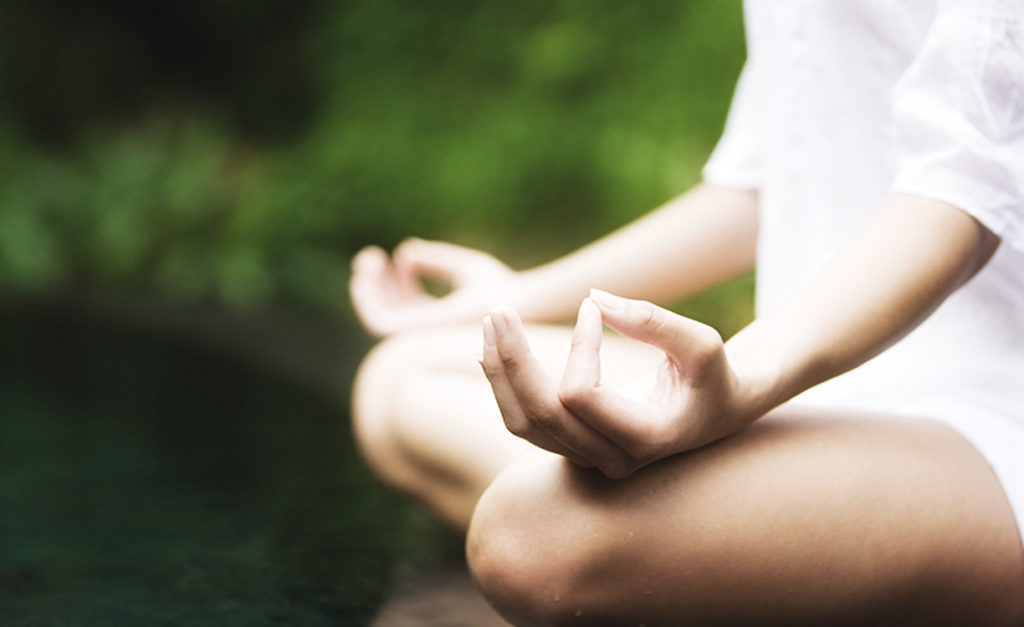In a fast-paced world modern world, stress is an everyday companion for many of us. It’s easy to feel overwhelmed with work pressures, family responsibilities, and life’s unexpected twists and turns.
The obvious place to start is to identify and eliminate the causes of stress. Unfortunately, that’s easier said than done! Many of us will have a considerable amount of stress that we simply can’t avoid.
That doesn’t mean we can’t do anything about it, though. There are plenty of natural and effective ways to manage stress and regain our peace of mind.
Whether you’re a time-strapped professional, a busy parent, or a student juggling work and study, there’s a stress-busting strategy for everyone.
Read on to discover some practical strategies for a more balanced, joyful life.
Why is Stress Management So Important?
Before we dive into the tips, let’s understand why stress management is crucial.
Stress is something that undermines our physical, mental, and emotional well-being.
The impacts of chronic stress on the body include:
- Weakened immune system
- Elevated inflammation levels
- Hormone imbalances
- Anxiety and depression
- Weight gain
- Premature aging
- Digestive issues
Stress also affects our productivity at work and our family relationships.
Eliminating unwanted sources of stress is the best solution, but it isn’t always possible. Therefore, finding ways to alleviate and offset the stress you can’t avoid is essential.
Below, I’ll discuss some practical ways to alleviate stress and prevent it from destroying our health. Keep reading!
How to Relieve Stress in 5 Minutes or Less
You know those times when you feel completely stressed, and if your head was a kettle, steam would be whistling out of your ears? Or when a loved one frustrates you so much that you either need to scream or laugh?
There are some brilliant ways to slow down or stop the hormone responses that cause such a stressful reaction.
Here are some tips to reduce stress and anxiety in less than five minutes::
1. Practise Deep Breathing
When we’re stressed, our breathing becomes shallow, and this can further increase our anxiety levels. Slow breathing stimulates the parasympathetic nervous system to bring the body back to a resting state, stopping the stress avalanche.
Correct deep breathing will:
- Increase the flow of oxygen to the brain and body.
- Reduce blood pressure and heart rate
- Relax the muscles involved in shallow breathing that causes headaches and back issues

There are many different breathing techniques out there, but here’s my simple approach to correct breathing:
- Place one hand on your stomach over your belly button. Take a deep breath, and as you do, allow your stomach to expand as the air rushes deep into your lungs.
- When you breathe out, your stomach should draw in towards your spine as your muscles squeeze the air out of your lungs. It’s like a bagpipe having the air squeezed out of it.
- When you breathe in, observe your shoulders. They should stay perfectly still with good posture – no shrugging, lifting, or rotating. The same goes for your upper chest. If those areas are moving, you are still breathing too shallow.
Closing your eyes and taking ten super slow, deep breaths does wonders to alter your mood. Try it when you feel stressed, when you are about to go to sleep or after a big meal.
2. Snack on Mood-Boosting Foods
When you’re feeling stressed, reaching for the high-fat, high-sugar comfort foods is tempting – but be warned, the relief is only temporary!
Instead, opt for some of these mood-boosting foods:
- Dark chocolate: Eat a few squares of 70% dark chocolate to boost serotonin, the happy brain hormone.
- Whole grains: Complex carbohydrates like oats stimulate your brain to produce serotonin.
- Nuts & Seeds: Provide a dose of healthy fats, protein, and magnesium – a mineral known for its stress-relieving properties.
- Salmon: Fatty fish contains omega-3 fatty acids, which can reduce inflammation and help fight depression.
Also, don’t forget to stay hydrated by drinking plenty of water throughout the day. Dehydration can lead to fatigue and irritability, making it harder to manage stress.
3. Take an Aromatherapy Moment
Aromatherapy has been around for centuries, but today, research has proven the impact of scents on the amygdala, the brain’s emotional centre. Essential oils like lavender, chamomile, and peppermint are the classic choices for relaxation and stress relief.
You can choose whatever scents appeal to you, though – some people love lemongrass (smells like unwinding at a Balinese spa!) or a bright, sunny citrus. Woody scents like sandalwood and hinoki can also help you feel more stable and grounded.
Aromatherapy jewellery and scent sticks are a handy (and portable) way to de-stress throughout the day. You can also diffuse these oils or add a few drops to your bathwater for a relaxing soak.
Liz from my InsideOut Challenge community recommends giving your body a 2-minute rub with carrier oil, magnesium spray, and essential oils after your morning shower. It’s a great mindfulness moment to thank your body and embrace your limitless potential.
4. Reframe Your Thinking
Our thoughts play a significant role in shaping our emotional and mental state. Finding a way to reframe our thoughts and avoid negative thought spirals can sidestep some of the stress we might otherwise feel.
After all, we run into potentially frustrating situations every single day. If we can manage sources of frustration as they pop up, we avoid adding to our stress levels, reducing the physiological and psychological burden.
Pay close attention to your thoughts, including what makes you feel better or worse. Instead of catastrophising, focus on the positive aspects of a situation or ways it will help you grow. In other scenarios, forgive yourself for the times you’re less than perfect and see how much better you feel.
As an exercise scientist, I know that repetition builds physical strength – and mental resilience is also a skill that can be learned! The more you practice healthy thought habits, the more it becomes second nature.
5. Have a Good Laugh
Have you ever noticed that even the most unbearable stress can melt away after hearing a good joke? The Mayo Clinic reports that laughing has excellent short and long-term benefits to your mood.
Laughter provokes the release of endorphins, potent neurotransmitters that eliminate pain and provide a general sense of well-being.

If you’re overwhelmed by stress, go out of your way to find something to laugh about. Even better, make an effort to surround yourself with positive people who have a good sense of humour.
Like the yawning effect, if you hang around funny and cheerful people, you will be caught up in their endorphins. If you’re anxious, put on your favourite sitcom for a quick mood boost!
6. Regulate Your Mood With Music
If you’re feeling the pressure, take a moment to listen to your favourite tunes. Music has a powerful impact on our emotions and can be an effective stress reliever. Research shows that listening to music regulates our stress hormones, decreasing cortisol and boosting feel-good dopamine levels.
If you’re feeling frazzled, aim for slow songs between 60 and 80 BPM to calm your heart rate and breathing. Check out some calming playlists on Spotify – there’s something for everyone, from acoustic to classical.
On the other hand, if you’re feeling a lot of pent-up emotion, moving to some upbeat music is a great way to release tension. Dance around your room if you have to!
My favourite tip is to create a playlist of your favourite feel-good songs, especially those that remind you of good times. Happy memories will have you feeling positive in no time, and you’ll be humming for the rest of the day.
What’s your number one favourite song? Get in your car and blast it – I promise a smile!
How to Relieve Stress in 10 Minutes or Less
7. Spend Time With a Pet
If you have a pet, you’ll know the calming and stress-relieving effects they can have. Our canine or feline companions aren’t just cute – taking the time to cuddle and play with them is the perfect dose of animal therapy.
According to the Centre for Disease Control and Prevention, pets can decrease blood pressure, cholesterol levels, and feelings of loneliness while increasing opportunities for exercise and socialisation.
Even if you don’t have a pet of your own, consider volunteering at a local animal shelter or offering to pet-sit in your neighbourhood. Unconditional love and companionship can do wonders for relieving stress and boosting overall wellbeing.
Read More: 4.5 Ways Dogs Make You Healthier
8. Get Moving for 10 Minutes
Of course, I have to include this one! Exercise is one of the best natural stress relievers. Physical activity releases happy endorphins and helps regulate cortisol levels, a hormone associated with stress.
Not only does getting active help you manage stress, but it also helps you sleep better and gives you the energy to tackle whatever life throws your way. There is plenty of research showing the mental health benefits of exercise.

No need to go extreme – it’s enough to get out of the office or house and enjoy 10 mins of power walking. Anywhere you can add physical activity to your routine is a plus, whether that’s a lunch break bike ride or a fitness class after work.
If you start to feel good, I bet you’ll go the extra mile and go for a little longer on the treadmill!
9. Treat Yourself
One of the reasons our stress levels are so high is that we rarely take time out for ourselves. Make it a priority to treat yourself once in a while – whether it’s getting a massage or buying yourself something you’ve been wanting for ages.
Lads, maybe skip this one, but ladies, try buying flowers for yourself! Do this after work on a Monday night and see how great you feel about the week ahead.
Buying flowers for your home is not just for occasions or when the in-laws are coming home for a meal; it’s for when you want to feel good about life and the presence of joy around you. Buy your favourite blooms after a rough day, and see how instantly you’ll be beaming.
How to Relieve Stress in 30 Minutes or Less
10. Recharge Your Social Batteries
One great way to relieve stress is to catch up with a good friend. Ditch the Facebook chat and catch up for a coffee, walk or meal with someone in real life.
We get so caught up in the virtual world that we forget and underestimate the power of physical meetings and hugs.

If everyone you know has a packed calendar, why not try saying ‘hi’ to a stranger? The Uni Of British Columbia found that a brief interaction with a stranger (like your local barista) puts people in a better mood, creating a feeling of ‘belonging’.
Try it on your next commute – I know it sounds random and strange, but it works!
11. Get Outdoors for 20 Minutes
Spending time in nature can have a calming effect on our minds and bodies. Whether it’s an outdoor workout or a quick stroll in the park, getting outdoors has been proven to reduce stress and improve overall wellbeing.
Research has shown that just 20 minutes spent in nature reduces cortisol levels – the hormone responsible for stress. Surrounded by greenery and fresh air, the body’s nervous system is regulated, and our mind is clearer, promoting calm and wellbeing.
Importantly, you’ll need to take time away from screens and social media to reap the benefits of a nature break. Taking a break from our screens and connecting with the natural world can help us slow down, gain perspective, and find inner peace.
Try setting aside designated times during the day to unplug and appreciate the world around you. Take a walk with the dog, plan a weekend hike, or simply sit in your backyard and soak up some vitamin D!
12. Try a Meditation or Mindfulness Practice
Meditation is a fantastic way to relieve stress, feel grounded, and regulate the body. However, many people struggle with traditional forms of meditation – admittedly, it’s not for everyone!
Luckily, there are plenty of ways to find a practice that works for you. If you struggle with meditation, why not start with a meditation podcast? Listening to soothing music or engaging in gentle forms of focused exercise, such as tai chi or qi gong, can also work.

Mindfulness meditation is particularly effective for stress. It involves focusing your attention on the present moment – to acknowledge and accept sensations and feelings as they are, without getting caught up in thoughts of the past or future.
In many cases, we add to our stress burden by worrying about things that are out of our control. Mindfulness meditation helps focus on the here and now, with a clearer mind and less distress.
5 Lifestyle Changes to Reduce Chronic Stress
Sometimes, we let stress go too far and get to the point where we’re too exhausted even to try one of the stress-relieving methods suggested above. In this case, one of the only remaining things that will help is to take a break and let your body and mind rest.
If you take some time out, you’ll likely feel recharged and ready to get back on track, but keep in mind that if you don’t find a way to alleviate some of the stress that wore you out in the first place, you’ll likely end up in the same situation again.
Here are five key lifestyle changes to banish stress:
1. Schedule Breaks & Rest Time
It’s easy to get caught up in work and forget to take a break. But taking regular time out during the day is a fantastic healthy workplace habit to boost productivity and reduce stress.
Set a timer for every hour or two and take a quick 5-minute break away from your desk. Whether you stretch, walk around, or do something that takes your mind off work, it’s an essential reset for your mind and body.

In the digital age, we’re constantly bombarded with notifications, emails and endless information to process. Of course, we’re going to feel overwhelmed! Taking a break from screens helps us reconnect with the present moment, relieving tension and helping us refocus once it’s back to business.
2. Do a Mind Cleanse
Just like we clean our physical space, it’s also essential to clear out mental clutter. Take time to reflect on your thoughts and emotions, and let go of anything causing unnecessary stress.
Journaling can be a great tool for this – write down your thoughts and feelings, fears and worries, and then try to identify any patterns or triggers. Once you are aware of them, it becomes easier to address and let go of what no longer serves you.
Meditation and mindfulness practices can also help to find peace in the chaos. Make it a habit to take some time each day for quiet reflection or guided meditation. You’ll be amazed at how much calmer you feel.
Learn more on the Healthy Her podcast: A fourteen day mind cleanse for overloaded Mums
3. Get 7 to 9 Hours Sleep
A high-stress lifestyle is the enemy of sleep! Many of us work late, watch our favourite shows on Netflix and scroll endlessly through social media – all at the cost of a good night’s sleep.
When stressed, many of us sacrifice sleep in favour of getting things done. However, this is counterproductive! Sleep is critical for regulating our mood and hormone levels, creating a spiral of poor sleep and increasing stress.

Try to get at least 7 to 9 hours of good quality sleep every night. If you’re having trouble falling asleep, try to create a peaceful bedtime routine using some of the relaxation tips on this list.
Read More: Sleep Hygiene 101: The Ultimate Sleep Checklist
4. Curate Your Newsfeed
What we browse online can be a major source of stress and anxiety! From doom-and-gloom online news to the social media scroll, minimise stress by taking control of your media diet.
With everything happening in the world, constant exposure to the news cycle can add a lot of emotional burden. Pay attention to how you’re feeling, and take a step back if you’re getting bogged down.

On social media, curate your newsfeed to give you a more positive and motivating experience. Unfollow accounts that constantly post negative, triggering, or stressful content.
Whether it’s inspirational quotes, cute animals, or healthy recipes, engage more with the content that makes you feel good – and cut out the sources of frustration or anxiety.
5. Get Organised & Clear the Clutter
A cluttered and disorganised environment is a ticking time bomb when it comes to feeling overwhelmed. Set yourself up for serenity and take time to organise your life, from your desk at work to your daily schedule.
One common source of stress is feeling like there’s not enough time in the day. To combat this, try using a planner or calendar, keeping a to-do list, or setting up a scheduling app. Prioritising your tasks regularly, focus on the most important ones first, and see what tasks can be moved off your plate altogether.
Don’t be afraid to say “no” to commitments that will add unnecessary stress to your life. Learning to set healthy boundaries can be challenging for many, but protecting your precious time and energy is essential.
Learn more on the Healthy Her podcast: Calm the Chaos with Organisational Queen Steph Pase
Key Takeaways
Stress is a part of life, but it doesn’t have to control us. It’s all about finding peace amidst the chaos – and, most importantly, finding a balance between work, rest, and family.
By making lifestyle changes and prioritising our wellbeing, we can manage our stress levels and live happier, healthier lives. Remember to prioritise breaks, get plenty of sleep, and clear out the ‘mental clutter’ regularly.
Everyone experiences stress differently, and what works for one person may not work for another. The key is to find what you feel makes a difference to your mind and body, and incorporate it into your daily routine.
Lastly, don’t be afraid to ask for help if you feel overwhelmed. Whether you talk to friends, family, or a professional, reach out before you get to breaking point! All of us are part of a community, and getting some support can make all the difference.
Go ahead and give these tips a try next time you’re feeling frazzled – your mind and body will thank you!



Recent Comments